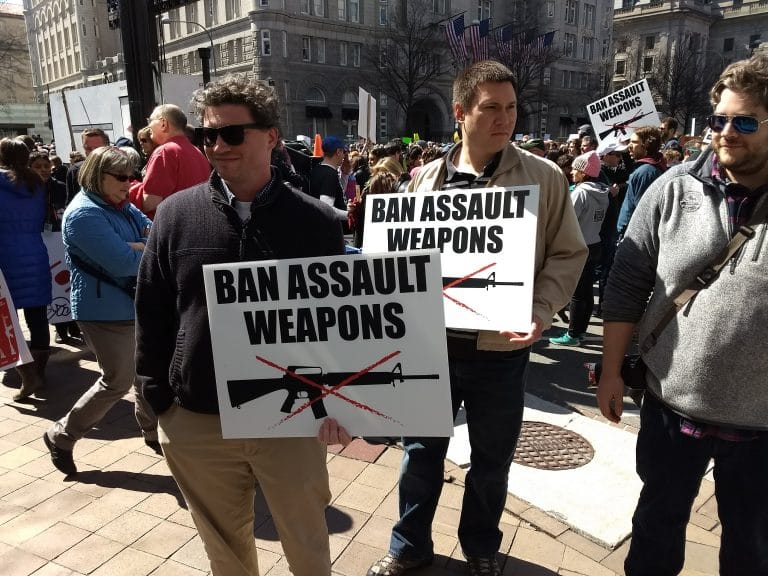Incentivizing people to sue their neighbors as a workaround for avoiding pre-trial injunctions against legally-problematic laws is all the rage right now.
Texas Republicans got the party started with their law banning abortions after six weeks, but only allowing the ban to be enforced through private civil suits. Now Florida Governor Ron Desantis (R.) wants to extend it to critical race theory training in schools and even at private businesses. But this isn’t a partisan impulse.
After the Supreme Court allowed the Texas law to stand while limiting, though not eliminating, paths for the plaintiffs to challenge it, Democrats started to dip their toes into the water as well.
California Governor Gavin Newsom announced over the weekend he would pursue a gun law in the mold of the Texas abortion law. He said he would use the same tactic to restrict access to firearms.
“I am outraged by yesterday’s U.S. Supreme Court decision allowing Texas’s ban on most abortion services to remain in place, and largely endorsing Texas’s scheme to insulate its law from the fundamental protections of Roe v. Wade,” Newsom said in a statement. “But if states can now shield their laws from review by the federal courts that compare assault weapons to Swiss Army knives, then California will use that authority to protect people’s lives, where Texas used it to put women in harm’s way.”
Then New York Attorney General Letitia James weighed in on Monday, backing up Newsom.
“When I heard about that, I said to my team, ‘We need to follow his lead,’” James said.
This is all in line with what I predicted back in September when the Texas law passed. I wasn’t the only one, of course. The Firearms Policy Coalition (FPC) brought up this exact concern to the Supreme Court in their brief in the case against Texas.
“It is hardly speculation to suggest that if Texas succeeds in its gambit here, New York, California, New Jersey, and others will not be far behind in adopting equally aggressive gambits to not merely chill but to freeze the right to keep and bear arms,” FPC said in its brief.
The gun proposals are half-baked at this point. Newsom proposed using the tactic “against anyone who manufactures, distributes, or sells an assault weapon or ghost gun kit or parts in the State of California.” That doesn’t make much sense since California has already banned those actions in the traditional way. In fact, they’ve been able to successfully defend those laws in federal court.
Perhaps if those laws are eventually struck down, and this civil-suit-sidestep-strategy remains viable, that will become a realistic alternative. For now, it’s more of a political threat than anything else.
The policy proposed by James shares some of the same problems. In addition to targeting “assault weapons” or “ghost guns,” James wants to go after gun company liability. But, again, New York has traditional policies addressing all of those things.
The state even has a novel law of its own that allows government officials to file suit against gun companies for the criminal use of their products by third parties, even if they have no connection to the events. It’s designed to sidestep federal protections against precisely those kinds of suits. Circumventing federal protections is not something they shrink from.
So, again, this approach could be the next up if the traditional approach fails in court. But, probably not before then. After all, it would be redundant to pull this trick now.
Still, the question is less about whether or not Democrats will co-opt the Texas approach. The real question is, who won’t co-opt it? Politicians love to copy strategies from each other anytime they’re remotely successful. They take it and apply it to whatever hot button issue is hottest in their jurisdiction at that time.
Perhaps the biggest question of all is how long federal courts will take to wrangle this novel approach. The longer this goes on, the more things we’ll all be incentivized to sue each other over.






